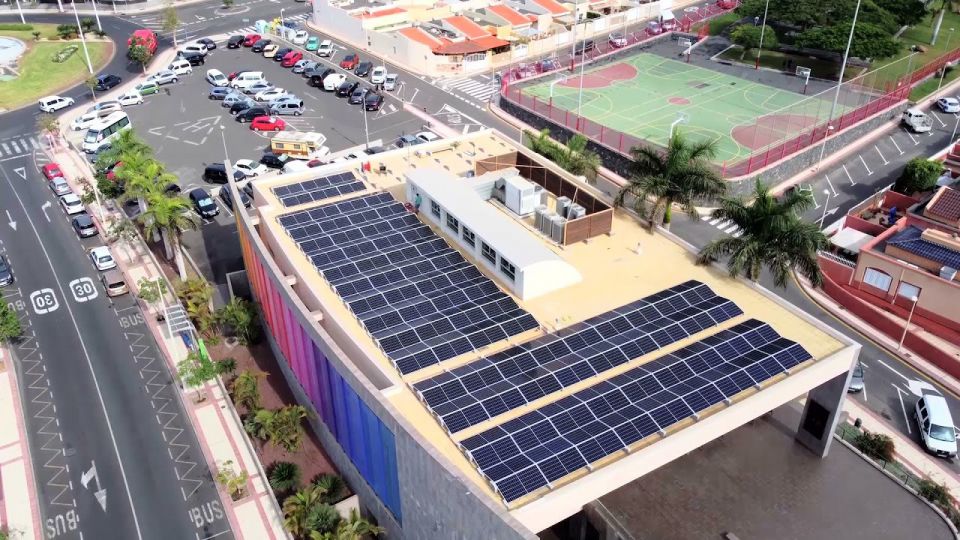Last month the EU Islands Facility NESOI in collaboration with the Clean Energy for EU islands Secretariat, organised the “Island Gamechanger Award”, recognising the evolution of sustainable islands’ projects that can serve as an inspiration for others. At the event the Adeje Verde project was awarded second place out of ten candidates from the islands of Venø in Denmark, Bere in Ireland, Cres-Losinj and Korcula in Croatia, Syros and the Diapontia Islands in Greece, and Lipari and Pantelleria in Italy.
Adeje Verde is an on-going project that works to share photovoltaic energy by creating energy communities. The first phase uses the roof of the Adeje School of Music, where solar panels have been installed, with a reach of a 500 metre radius. The project is continuing to work to create new energy circles throughout the borough and to date 167 families, a cafeteria, a pharmacy, a municipal police building and the School of Music have been connected.
The Adeje mayor José Miguel Rodríguez Fraga stressed that “this is a project that benefits all the people of Adeje, who are the first to be able to contribute to the elimination of our carbon footprint. The councillor for ecological transition, Manuel Luis Méndez Martín said, “People can enter or leave these energy communities as they wish – they are under no obligation, but our community at large is working to become a good example of how energy can be bought and sold between neighbours”
Present in Brussels to accept the award and present the project was Ricardo Luis Guerrero Lemus, professor at Universidad La Laguna. He said this was a project that Adeje could be proud of, not simply for having created the largest citizen energy community in Spain in terms of people and entities involved, but for demonstrating to a panel of experts that the project works and is capable of being replicated in other parts of the borough and beyond.
The professor named five other boroughs, in Gran Canaria, Tenerife, Lanzarote and Fuerteventura where copies of this project are being considered.
THE AWARDED PROJECTS
SYMBIOTIX in Menorca, Spain: The goal of the technical assistance is to find regulatory ways to involve local citizens as investors and owners of the PV plant implemented, owned and operated by the consortium of local municipalities. While in Spain there is experience in cooperative of citizens, fully public or private ownership of generation plants, there is limited experience with public-private collaboration in renewable energy project.
SoFIA/ADEJE VERDE (Setup of the First Citizens' Energy Community in Canary Islands: Adeje) in Tenerife, Spain: The project consists in elaborating a feasibility study to establish energy communities around PV assets in the town of Adeje, where for collective self-consumption, community members will be given a monetary benefit
SAVE (Sustainable Actions for Viable Energy) in Crete, Greece: Two sports facilities owned and operated by the municipality will be involved as prosumers in the smart grid. The stored electricity, combined with electricity production from PV, will lead to annual compensation of their electricity consumption, resulting to zero-energy facilities, together with their energy performance upgrade.
The remaining projects included in the top ten list were the following:
Energy transition in Venø, Denmark
BITET: Bere Island Transport Energy Transition, Ireland
Community-Supported Energy: A Step to Community SOLAR Islands (SOLAR Islands) in Cres-Losinj and Korcula, Croatia
Smart ElectroMobility in Syros, Greece
JEDI: Just clean energy transition of Diapontia Islands, Greece
FESOL: Feasibility Study for Energy Storage and Solar Energy in Lipari, Italy
RETRIEVE in Pantelleria, Italy
